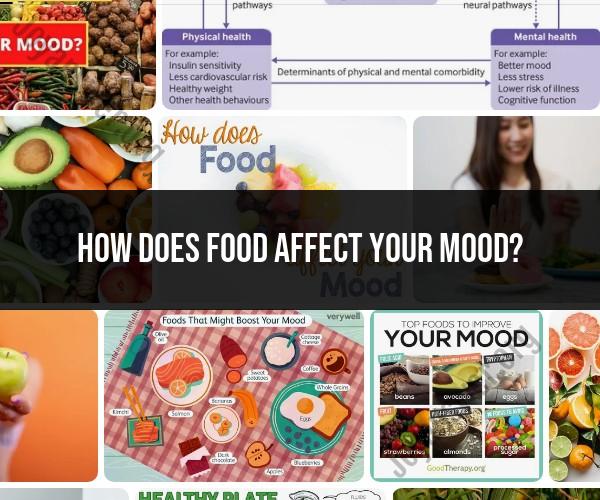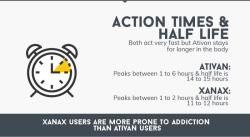How does food affect your mood?
Food has a significant impact on mood and emotional well-being due to several physiological and psychological factors. Here's how food can affect mood:
Nutrient Composition: The nutrients in food, such as vitamins, minerals, amino acids, and fatty acids, play essential roles in brain function and neurotransmitter production. For example, omega-3 fatty acids found in fatty fish like salmon and walnuts are associated with improved mood regulation and reduced risk of depression.
Blood Sugar Levels: Foods with a high glycemic index, such as sugary snacks and refined carbohydrates, can cause rapid spikes and crashes in blood sugar levels. These fluctuations can lead to mood swings, irritability, fatigue, and difficulty concentrating. Consuming complex carbohydrates, fiber-rich foods, and sources of protein can help stabilize blood sugar levels and promote steady energy throughout the day.
Serotonin Production: Serotonin is a neurotransmitter that plays a key role in regulating mood, sleep, appetite, and stress. Certain foods, such as those rich in tryptophan (an amino acid precursor to serotonin), can help increase serotonin levels in the brain. Examples include turkey, chicken, eggs, dairy products, nuts, seeds, and tofu.
Gut-Brain Axis: Emerging research suggests a strong connection between the gut and the brain, known as the gut-brain axis. The gut microbiota, comprised of trillions of bacteria residing in the digestive tract, can influence mood, behavior, and mental health. Consuming a diverse range of fiber-rich foods, fermented foods (such as yogurt, kefir, and kimchi), and prebiotics (such as garlic, onions, and bananas) can support a healthy gut microbiome and promote emotional well-being.
Inflammation: Chronic inflammation is associated with an increased risk of mood disorders such as depression and anxiety. Certain foods, such as those high in refined sugars, saturated fats, and processed ingredients, can promote inflammation in the body. Conversely, a diet rich in anti-inflammatory foods such as fruits, vegetables, whole grains, nuts, seeds, and fatty fish can help reduce inflammation and support mental health.
Hydration: Dehydration can negatively impact mood and cognitive function, leading to feelings of fatigue, irritability, and difficulty concentrating. It's essential to stay adequately hydrated by drinking water throughout the day and consuming hydrating foods such as fruits, vegetables, and soups.
Overall, making mindful choices about food and prioritizing a balanced diet rich in nutrient-dense foods can positively influence mood, emotional well-being, and overall mental health. Incorporating a variety of whole foods, staying hydrated, and paying attention to how different foods affect energy levels and mood can help support a healthy mind-body connection.
In what ways does dietary intake impact an individual's mood or emotional well-being?
While the exact mechanisms are still being actively researched, there is growing evidence suggesting a strong connection between dietary intake and an individual's mood and emotional well-being. Here are some key ways in which food choices can impact your mental state:
1. Gut Microbiome and Brain Health:
- The gut microbiome, the trillions of microorganisms residing in your intestines, plays a crucial role in digestion and overall health.
- Emerging research suggests a two-way communication between the gut and the brain, often referred to as the gut-brain axis.
- Certain dietary choices can influence the composition of the gut microbiome, potentially impacting the production of neurotransmitters like serotonin, dopamine, and GABA, which significantly influence mood and emotional regulation.
- Diets rich in probiotics (beneficial gut bacteria) and prebiotics (foods that nourish gut bacteria) are generally associated with positive mood and reduced risk of depression and anxiety.
2. Blood Sugar Regulation:
- Fluctuations in blood sugar levels can significantly impact mood and energy levels.
- Diets high in refined carbohydrates and added sugars can lead to rapid spikes and crashes in blood sugar, potentially contributing to mood swings, irritability, and fatigue.
- Choosing complex carbohydrates with high fiber content helps regulate blood sugar levels, promoting sustained energy and potentially contributing to improved mood stability.
3. Nutritional Deficiencies:
- Deficiencies in certain nutrients, including vitamin B12, vitamin D, iron, and omega-3 fatty acids, have been linked to an increased risk of depression and anxiety.
- Ensuring a balanced diet rich in various fruits, vegetables, whole grains, and lean protein sources helps ensure you're getting the essential nutrients your body needs to support neurotransmitter production and overall brain health.
4. Inflammatory Response:
- Chronic inflammation has been linked to various mental health conditions, including depression and anxiety.
- Diets high in processed foods, saturated fats, and added sugars can contribute to inflammation.
- Choosing anti-inflammatory foods like fruits, vegetables, and whole grains can potentially help manage inflammation and potentially improve mood and well-being.
5. Food as a Source of Pleasure and Reward:
- Food can provide a sense of pleasure and satisfaction, triggering the release of mood-boosting neurotransmitters like dopamine.
- While indulging in occasional treats can be part of a healthy lifestyle, consistently relying on unhealthy foods for comfort or reward can lead to negative consequences on both physical and mental health.
It's important to note that dietary changes alone may not be a cure-all for mental health concerns. However, making conscious choices towards a nutrient-rich, balanced diet can contribute to overall well-being and potentially play a supporting role in managing mood and emotional health. If you are struggling with significant or persistent mental health challenges, seeking professional help from a mental health professional is crucial.













